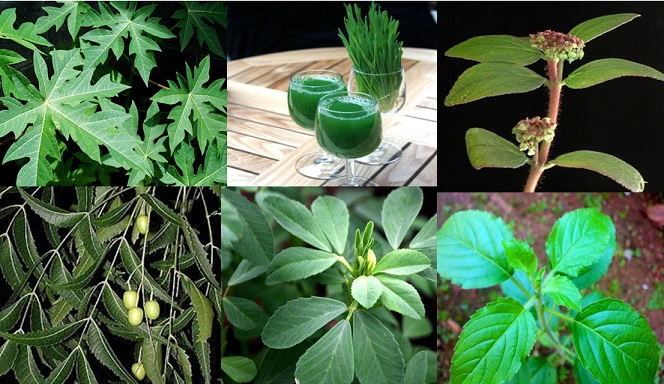
Dengue Fever and Natural Remedies
When it comes to widespread viruses affecting millions of people each year, dengue fever is one of the worst. While its mortality rate is relatively low, between 50 million and 500 million people are affected each year by the dengue virus, which is transmitted via mosquitoes. The World Health Organization (WHO) estimates there may be 50-100 million dengue infections globally every year, with two-fifths of the world population, or 2.5 billion people, at risk of this mosquito-borne infectious disease. While being infected with dengue is an unpleasant experience – it is also known as break bone fever – with typical symptoms being fever, headache, rashes, and muscle and joint pains, a healthy person’s immune system usually has no problems fighting the virus off. The problem comes when dengue hemorrhagic fever develops. This extreme form of the illness causes severe bleeding due to “leaky” blood vessels and delay in blood clotting caused by low levels of platelets, which are essential in forming blood clots. According to the WHO, an average of about 2.5% of those who develop dengue hemorrhagic fever die.
There is no cure for dengue, nor is there any vaccine for it, although there are several research teams currently working on one. The main method of controlling this disease is via prevention; for example, ensuring that there is no stagnant water or any container where water can pool in around, fogging, using mosquito nets and repellent, and covering up or staying indoors at dawn and dusk when the tropical Aedes mosquitoes are most active.
With no definitive treatment from modern medicine available, it is not surprising that many have turned to alternative therapies for relief. Here are few plants that are considered to be good remedies for dengue fever.
Papaya leaf juice:This is probably the most well-known alternative treatment for dengue. In April last year, the Evidence-Based Complementary and Alternative Medicine Volume 2013 (2013), Article ID 61673 published findings showing that the consumption of Carica papaya leaf juice induced rapid increase in platelet count in patients with grade one and two dengue fever and the fatal dengue haemorrhagic fever. The suggested preparation method is: take leaves of a papaya tree. Wash properly, grind, and squeeze the juice into a bowl or a glass. Drink a glass or two every day for at least 4 days (minimum) apart from other fruit juices. Remember, it is not the fruit, but the leaves of papaya. Being easily available and affordable, the use of papaya leaves occurs indiscriminately. The physician however remains unclear of their stand on the issue.
Barley Grass: Barley grass has the unique ability to significantly increase the body’s blood platelet count by stimulating the production of more blood cells. You can drink barley tea or eat barley grass directly and see a rapid increase in platelet count, which is one of the more serious side effects of dengue fever that can prolong weakness and increase the susceptibility of the body to dengue hemorrhagic fever and more serious complications.
Tawa-tawa plant: This is commonly known as asthma plant or gatas-gatas with a scientific name- Euphoribia hirta. This hairy herb is commonly used in the Philippines & India as an alternative treatment for dengue fever. Tawa-tawa is indeed effective but should be taken with caution. Large doses may cause gastrointestinal reaction, nausea and vomiting. Prolonged intake may interfere with iron adsorption. Not recommended for pregnant women. As a folkloric treatment in the Philippines for dengue, tawa-tawa has earned many anecdotal testimonies from those who purportedly became well from the plant’s concoction: its leaves boiled like a tea and taken orally. Tawa-tawa Tea is actually used by Philippines folk medicine system to cure dengue fever. In preparing tawa-tawa tea, 100 grams of the fresh whole plant (including roots) are washed and boiled in half a liter (500 ml) of water for 15 minutes. After cooling and paper-filtration, the decoction is taken by the patient at one glass every hour until the fever subsides.
Neem Leaves : Neem leaves are prescribed for a variety of ailments, and dengue fever is no exception. Steeping neem leaves and then drinking the subsequent brew has been shown to increase both blood platelet count and white blood cell count, two of the most dangerous side effects of the virus. Properly brewed neem leaves can improve the immune system and return your strength much faster than many other home remedies.
Fenugreek: Fenugreek leaves are known to reduce fever and act as a slight sedative to ease pain and promote more sleep that is restful for patients. This is a popular home remedy for dengue fever symptoms in numerous places around the world.
Basil: Chewing basil leaves known to be an important immune-boosting technique, and has long been recommended in Ayurvedic medicine for the treatment of fever. Basil essential oil also has natural insecticidal properties that will make you less attractive mosquitoes, and makes use of basil essential oil a preventative strategy.
Disclaimer: If you or anyone you know is having symptoms of Dengue fever please seek professional medical attention. Use these home remedies only as supplemental treatments and please note that these are NOT formal cures.
References:
Author: HealthyLife | Posted on: October 5, 2015
« How to Get Rid of Body Odor ? For Better Health: Eat more foods that are unprocessed & natural »






















Write a comment